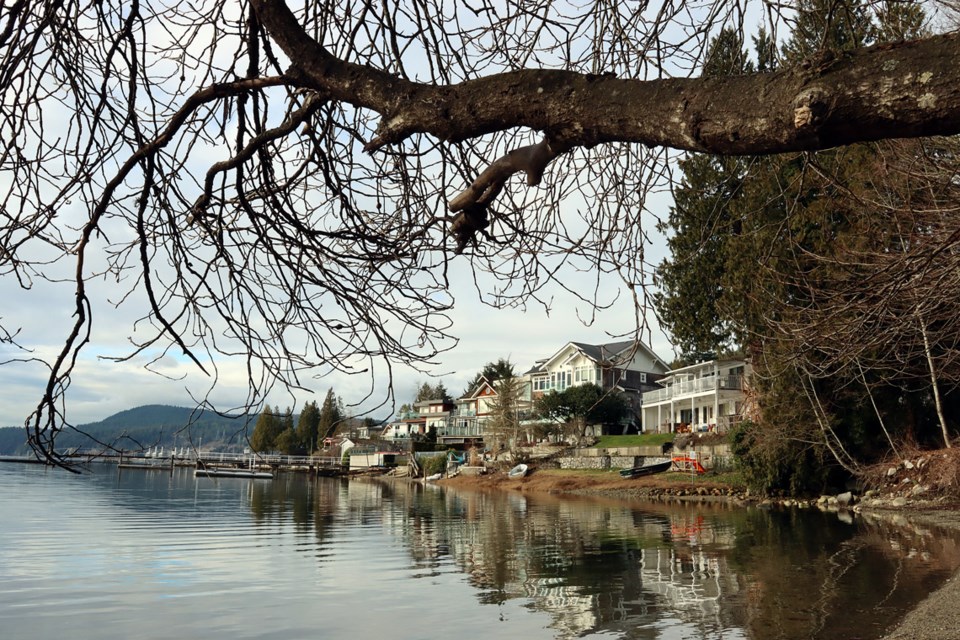It will cost Port Moody more than $4.2 million to implement the first phase of its climate action plan over the next two years.
But whether the city can afford it will have to be determined by council’s finance committee that’s to consider possible funding sources and how much of that money should be spent after the plan’s implementation strategy was endorsed by council’s committee of the whole on Tuesday.
Coun. Meghan Lahti, who chairs Port Moody’s climate action committee, said the city can’t afford not to move forward on the plan.
“There are consequences to not acting,” she said. “We really need to get behind this.”
Other councillors were less bullish.
“The costs we’re looking at are just the beginning,” said Coun. Zoe Royer, who worried about the impact some of the plan’s programs might have on residents’ own finances.
“We’re on a tight budget this year, and I can’t imagine covering something like this for the required amount,” Coun. Steve Milani added.
But Coun. Diana Dilworth suggested the city could realize some economies by working with other communities.
Laura Sampliner, the city’s sustainability and energy coordinator, said just such a strategy is already being considered.
Port Moody’s general manager of community development, Kate Zanon, told council the city is also pursuing various grants to help cover some costs.
“Right now there’s not a lot of federal grant funding, but we hope in future there will be more,” she said.
According to a staff report, almost half of the plan’s projects will be initiated in its first two years and will require the addition of two seasonal staff members and two temporary full-time staffers. Several initiatives are already underway, including:
- comprehensive climate audits of all civic facilities to determine how their greenhouse gas emissions can be reduced and how they can be prepared for future climate scenarios
- revise the report card that is used to assess sustainability for new developments
- advocate with the provincial and federal governments for the authority, financing tools and other tools to achieve zero emissions buildings
- assess the city’s fleet of vehicles to identify opportunities to increase efficiency and reduce greenhouse gas emissions
- accelerate and fund projects in the city’s master transportation plan that will reduce greenhouse gas emissions by 2030, like transit-oriented development and the construction of paths and trails
- investigate opportunities with Metro Vancouver to reduce waste and increase awareness of waste generation
- encourage density and the development of mixed-use neighbourhoods around transportation hubs
- develop strategies to manage urban forests and the city’s other natural assets, as well as the protection, restoration and connection of environmentally sensitive areas
- integrate climate budgets into the municipal budget process
Port Moody’s climate action plan was adopted last July as a strategy for the city, its residents and businesses to reduce 40% of greenhouse gas emissions by 2030 and prepare for the effects of future climate changes. Amongst its 18 goals are:
- all new and replacement heating and hot water systems to be zero emission by 2030
- all oil and propane heating and hot water systems to be replace by zero emission systems by 2030
- all buildings to have zero emission heating and hot water systems by 2050
- residents will walk, cycle or use transit for 40% of trips by 2030
- 40% of passenger vehicles and 25% of commercial vehicles are electric by 2030
- minimize waste going to landfills and achieve zero emissions from waste by 2050
Urgency is paramount to mitigating the impact of climate change, the report said, adding the plan will be reviewed every fall and then revisited in the fifth year.
“There is a need to equally move forward with adapting to the quickly changing climate at the same time as swiftly and effectively cutting emissions,” it said. “The sooner actions are under way, the better prepared our community will be for responding to climate change.”



